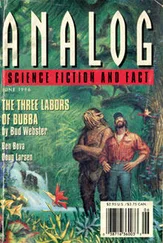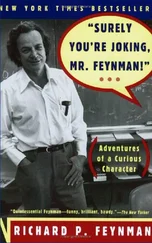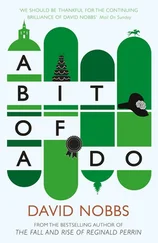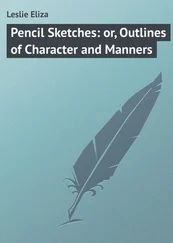K answered the phone almost right away. He said, Hello and nothing more. In the silence that followed I told him who I was and where we’d met before. He said he remembered me and he was sorry because he’d heard the news. Would I like to come over to see him some time? He said he was in the Meridien, he gave me the number of the suite, said he’d be around for a while.
I sat with him for a few hours that same day, nestled in a couch at the side of the room, listening to him talk. He said how much I’d changed. He remembered a fresh and nervous college girl.
Between customers, between answering the phone, he talked to me, talked about things absent-mindedly, talked about his business, kept me occupied. When the customers came I sat alone at the side and watched until they were gone. Finally he came round to the only thing I wanted to know. He said he was not at all surprised by what happened, that he always thought it would end this way, that he was a wild one, that no one could live like he did for so long and not come crashing down to the ground. He told me all about the parties, about the raves.

For a week or so I go back to K, day after day, and he tells me the things he knows. I listen to it all. I keep coming back. He doesn’t mind, he says I’m good luck for him. I sit in the room while he conducts his business. I provoke curiosity in his customers. I sit there every day, numbed somehow and lost in thought. He asks me what I’m going to do with myself now. I say I don’t know. I’ve finished college, I was thinking of getting a job. Where I live, they’re getting impatient, but they’ve given up trying to marry me off.
At some point he looks over at me as if I’ve been noticed for the first time. He cuts a couple of lines of coke, holds out a rolled-up banknote and says I should help myself. He says it’ll make me feel better.
There’s nothing in the world like the first line of cocaine. The way it hits the brain, sharpens the lights of the room, removes all doubt, removes the pain. Removes guilt too.
I take two grams with me. He says there’s no rush to pay, just go, forget about him, enjoy yourself. That’s what he would have done. There’s a whole city out there waiting for you.
I do another line in the room and then I drive back home.

Throughout our love, until it was much too late, there was always the hope that he would change. That he would become rich, successful, respectable. Respectable above all else, because of his ideas and the wealth they would bring. That one day he would become rich on his own, not through inheritance but through talent, skill, that he would make money, make business, do something. That this would be enough for me to present him to my family and say, Look, I found someone. And if he were rich, if he were famous, if he were a recognized success, if they knew him from the papers, if he had been confirmed in some public way, then they would embrace him. They would overlook his flaws, his ugliness, his black skin, his well of madness. They would be happy to let me go to him. All the way through I held on to a hope like this, like the coward that I was. I could never quite let that go.

I went to the qawwalis one more time. I got out of the car and walked down the path to the same alleyway past the mosque, shining bright with all those godly lights. But it was cramped and noisy and I was painfully alone and it stank of men and their meat and their eyes.
Still inside the dargah, by the shrine, I hoped for some of the old magic to appear, for the music to lift me, for the saint to return the love I once gave. But the saint kept his distance and the music left me cold. It was toneless, an empty edifice behind a veil in a world built by fools.
I stood as I used to stand, not knowing what to do with myself. The way the devotees behaved, it seemed more like a train station than a holy place. Men went into the shrine like a ticket office as the women and children huddled together outside. They stared morosely, nudging, gossiping, scowling. I looked around the empty space trying to hold on to something, but it wasn’t the same. I saw things I hadn’t noticed, the dirty stains on the marble, the ugly white lights and the shops on the edges selling bright, tawdry clothes. I smelled the ripeness of armpits and unwashed feet and became full of hate. I despised it all.
All eyes seemed to fall on me, the women’s more than ever. They were watching, sniggering, twisting their lips. Making me feel foolish and ashamed. Because I was alone, because of the way I was dressed. I couldn’t take being watched like this so I went to the edge of the courtyard away from the music and stood at the wall in the shadows thinking I would be all right there. But there other pious women began to notice, to hiss at me, curse me for leaning against the wall, for doing things I didn’t even know were wrong. And when I stepped forward and squatted down to try to hide they hissed at me some more.
I retreated from the dargah back to my car. I cursed them all the way. I drove a short distance until I reached Jor Bagh, parked and cut myself a line, then drove through the city at speed.

Him and me, we are driving up to Majnu ka Tila in October. The prayer flags are fluttering over the stagnant Yamuna breeze. He’s picked me up from college to drag me here, called me out of the blue.
Rain came down for a day yesterday, out of season, surprising us all, bringing up the sewage and leaving the heat behind, and the flies and mosquitoes and the traffic fumes. Here by the refugee colony, old metal coaches are parked full of Tibetans, young men, young women, old men and women, all weighed down with boxes of supplies and possessions, waiting to head back up to the mountains. Foreigners too, sitting exhausted with their backpacks and matted hair by the side of the road, and the tangle of prayer flags over everything.
Inside the colony we walk through the alleys, past Internet cafés and travel agents. In a guest house there’s a longhaired Tibetan from Amdo called Losel, who dresses like a basketball player, speaks American English and has fifty tolas of charas he’s looking to get rid of.
He grins at us in the murky restaurant with four cheap marble tables. There’s the smell of fried food and incense. Next to him a stocky monk is slurping noodle soup, dripping sweat from the end of his nose. His arms are tree trunks, and although the rest of his body is hidden within the crimson robes, you can feel the strength of it, the kind of strength that pulls trucks in its wake and lifts rubble. He has a wiry moustache and goatee and a hairline low on his head.
Losel puts an arm around the monk’s shoulders, saying, This is my brother. The monk stops eating, turns his head towards Losel and curls his lip, the kind of sneer that’s reserved for a cockroach. Then Losel says something in Tibetan and the monk produces a great grin that transforms his face and continues eating.
He hates it here, Losel says, addressing me, gripping the monk’s shoulder even tighter. He thinks Delhi is a hell and I’ve become one of its demons. He’s only here for a night to pick up supplies, but even this is too much. He thinks the city is evil, it gives him a headache, dealing with the dishonest people, the liars and the thieves. He’s from Amdo, just like me. We came together over the mountains, eight of us through the snow walking single file at night from Amdo through Tibet to Nepal and then here. It took eight weeks — hiding in the day, walking at night. They have the snipers up there. It was OK though, no problem, no one died that time. One of us died later but he had TB. Two more are in prison now.
Читать дальше













